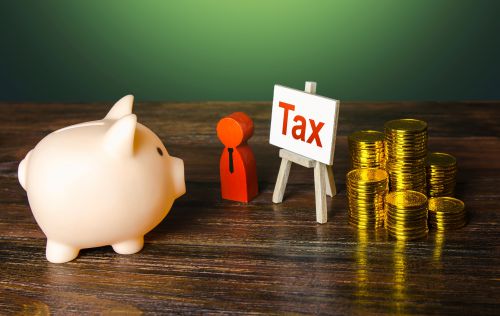Last updated: January 24 2023
Taxpayer Relief Provisions: How To Use Them

Did you know there are taxpayer relief provisions to lean on if you have run into hard times and can’t pay your tax bill? But you’ll need to understand the fine print – financial hardship isn’t usually a good enough reason not to pay, and you’ll always have to pay the taxes. The relief CRA can grant you is limited to waiving penalties and interest. Here’s how to access these rights:
The Taxpayer Relief provisions may be accessed using Form RC4288. This allows CRA discretion to grant penalty and interest relief in three cases, as described in their Information Circular IC 07-1R1:
- Extraordinary taxpayer circumstances, including natural or man-made disasters such as flood or fire, civil disturbances or disruptions in services, such as a postal strike, a serious illness or accident or serious emotional or mental distress, such as a death in the immediate family
- Actions of the CRA, including processing delays that result in the taxpayer not being informed, within a reasonable time, that an amount was owing, errors in processing, or errors in the material available to the public, which led taxpayers to file returns or make payments based on incorrect information, incorrect information provided to a taxpayer, i.e. where the CRA wrongly advises a taxpayer that no instalment payments will be required for the current year. Also:
- Delays in providing information, so that the taxpayer could not make instalment or arrears payments because the necessary information was not available or
- Undue delays in resolving an objection or an appeal or in completing an audit.
Inability to pay or financial hardship – is generally not allowed as a reason not to pay CRA. However, when the collection had been suspended due to an inability to pay and substantial interest has accumulated or will accumulate, or when a taxpayer's demonstrated ability to pay requires an extended payment arrangement, CRA may waive all or part of the interest for the period from when payments start until the amounts owing are paid.
But this provision for relief only kicks in only as long as the agreed payments are made on time and compliance with the Income Tax Act is maintained or when payment of the accumulated interest would cause a prolonged inability to provide basic necessities (financial hardship) such as food, medical help, transportation, or shelter.
Permissive Deductions. Note that adjustments to "permissive deductions" must generally be made within 90 days of the date of the Notice of Assessment or Reassessment. Examples are adjustments to Capital Cost Allowances (CCA), where less than the maximum claims were made. CRA will not process requests for adjustments if a decrease in tax results. Other permissive deductions include deductions that reduce business or rental income. 
Bottom Line: With higher interest rates and a recession on the horizon, a highly qualified tax specialist will make sure their clients can take advantage of all Taxpayer Relief Provisions.
Additional Educational Resources: 2023 Advanced T1 Tax Update For 2022 Returns - This fantastic course will help you shake out the cobwebs and drill down on the detailed tax theory or “dark horses” as well as all news from CRA and Finance Canada for filing 2022 tax returns. Includes: Online Quizzes, Program Guide with Presentations, Certification and Accreditation and MUCH MORE!
And don’t forget all of Knowledge Bureau’s certification/designation course come with free access to the essential Evergreen Explanatory Notes. A tax research library at your fingertips. An unbelievable resource that you’ll use again and again.
